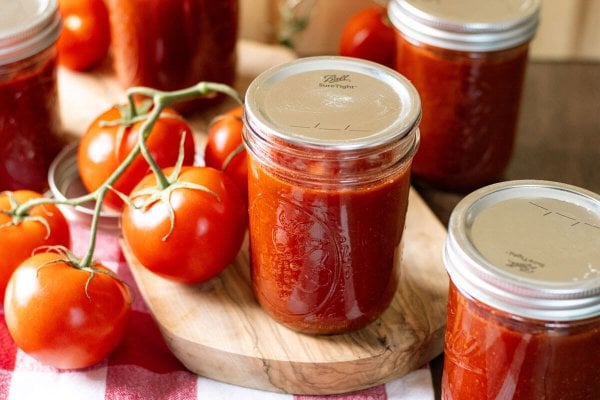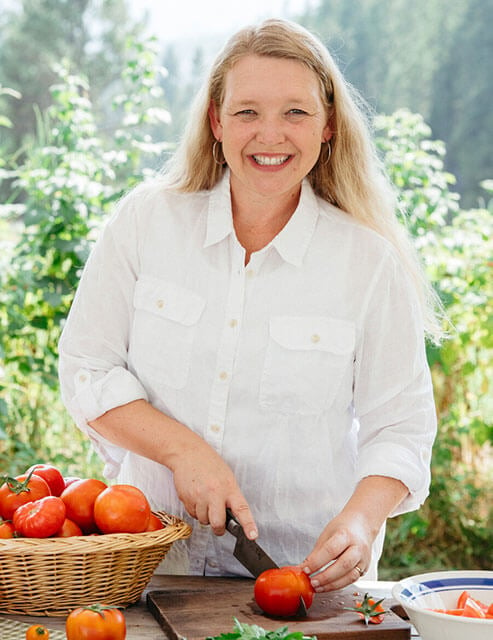Many of us want to start a homestead that will sustain our livelihood. That usually comes in the form of some kind of homestead business. So, how do we go about starting a homestead business that’s not only profitable but sustainable? Join me in this podcast episode with Joel Salatin as he shares his years of experience.

About Joel Salatin
Joel Salatin calls himself a Christian libertarian environmentalist capitalist lunatic farmer. Others who like him call him the most famous farmer in the world. With 15 published books and a thriving multi-generational family farm, he draws on a lifetime of food, farming and fantasy to entertain and inspire audiences around the world.
He’s as comfortable moving cows in a pasture as addressing CEOs in a Wall Street business conference, and his speaking and writing reflect dirt-under-the-fingernails experience punctuated with mischievous humor. He passionately defends small farms, local food systems, and the right to opt out of the conventional food paradigm. Four generations of his family currently live and work on Polyface Farm in Swoope, Virginia.
Be sure to listen to the first 17 minutes of the podcast as Joel shares his journey as a young boy on the farm to build a legacy and business he’s now passing down to the next generation.
Cautions for Starting a Homestead
Upfront Investment
One of the biggest dangers Joel sees when people want to buy a homestead and start a homestead business is that they invest their entire nest egg into as much land as they can afford.
Unfortunately, this leaves them with no capital left for projects or improvements they want/need to do. Yet, there’s also no income coming in from business ventures on that homestead to provide capital either.
To keep this from happening, it’s not recommended to spend all your money on the property alone. Joel recommends if you have a $400,000 nest egg, invest $200,000 of that into a house/land (even if it’s less land or house than you want). Save the rest of your money for investing in the property and business.
It’s important to understand the necessary investments in a homestead business. Outfitting a decent shop alone will vary depending on your needs but can easily cost upwards of $10,000.
Instead, if you invest less money on the land and more money on improving the land, then in two or three years, you can sell that land for more than you purchased it for and “trade up.” This route may take longer to get you your “dream home” than you hope for, but it’s the best way to get where you want to be without the risk of “putting all your eggs in one basket.”
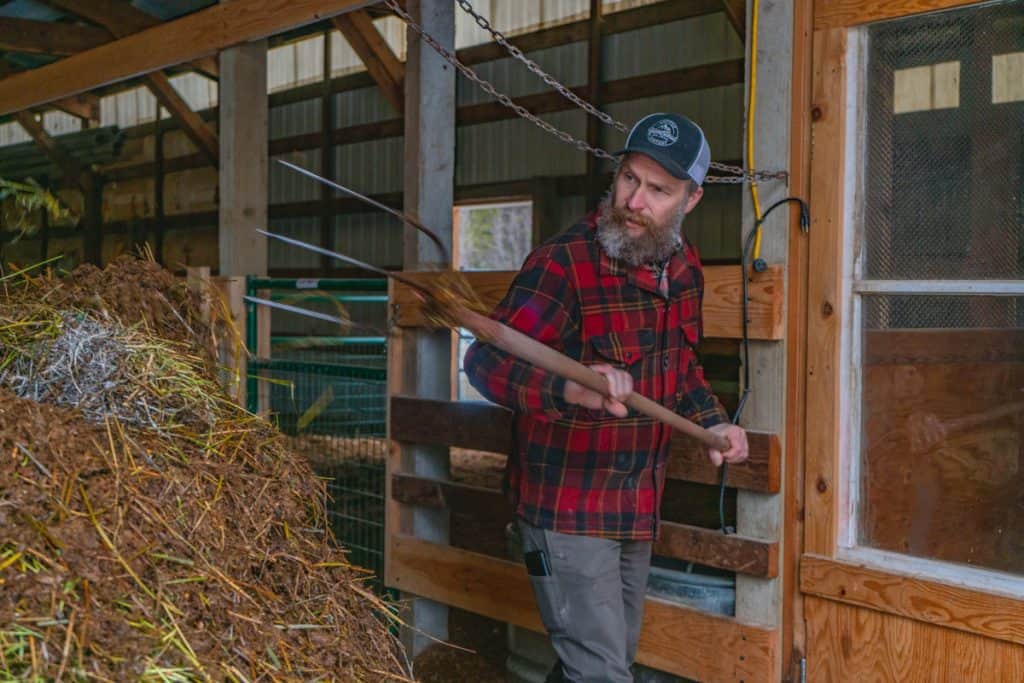
Timeframe
We live in a very impatient time. People “want it done yesterday” when it comes to buying land and building a functioning, productive homestead. Especially in this day and age where we can see people doing it on YouTube every single day.
Joel has identified that if you can give two years of dedicated work to your homestead business, it’s plausible to be self-sufficient in your business ventures from then on out. I would stretch this to say three years, because sometimes there’s simply more to be done on a homestead before things are up and running. But the overall point remains that it will take years of time and effort.
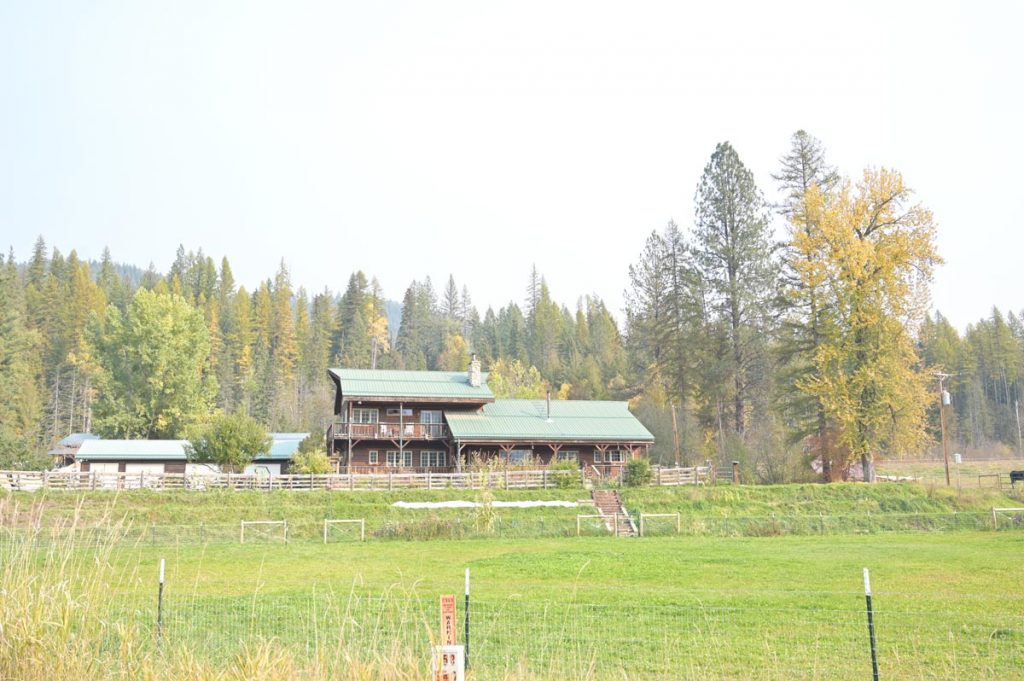
Savings
Remember what Joel said about the upfront investment? If you dump your entire life savings into a piece of land, you’ll have nothing to fall back on. Nothing to get you through the two to three-year hump of getting your business up and running.
Don’t deplete your savings. If you’re serious about starting a homestead business, build up a nest egg that you can live off of for at least two years (I’d recommend three). Follow Dave Ramsay’s advice of building an emergency fund (because emergencies will happen), paying off debt, eliminating extra expenses and throwing everything else into savings.
If you can build up two to three years’ worth of expenses, when you’re ready to buy a homestead property and start building a homestead business, you won’t have the added stress of trying to figure out how you’ll pay for your everyday expenses in the meantime.

Mindset of a Business Owner
Often, homestead hobbies become the little “toe dips,” as Joel calls them, into running a homestead business. This means that most often, people start a business around the hobbies they’re already doing.
Business Setup
It’s important to set up a veil of protection between your business and your personal wealth. Depending on your situation, there are various ways to set up your business. We won’t go into the differences between an LLC, S-Corp, C-Corp, Joint-Ventures, etc., but just know that you have options when it comes to setting up a homestead business.
Many times, setting yourself up with a business provides protection and tax savings when done correctly. We highly recommend getting a good tax accountant to help provide you with more information.
I also recommend reading Cashflow Quadrant by Robert T. Kiyosaki.
Taxes
Joel’s father was a tax accountant, so when they began running a homestead business, they started Polyface Inc. as a C-Corp. The business rents the land from Joel and his wife. When they first started out, their income was “unearned income,” therefore, not subject to FICA tax. This saved them thousands of dollars during their initial setup.
There are many ways to set up your taxes to work with your homestead business. Again, we highly recommend getting a good tax accountant. Preferrably one who is familiar with homestead businesses.
Financial Records
Financial records are a must. If you’re not sure how to keep records, learn. This is so important to not only do, but do well. Keeping financial records is all about categories.
If you’re raising pigs and chickens, you can’t just have a category for “animal feed.” You need to have it broken down separately for the layers, the meat chickens and the pigs.
When buying soil amendments, you need to separate vegetable garden soil amendments from your pasture amendments.
If you can’t categorize your expenses and income, then it will be very difficult to know if a specific business venture is actually making or costing you money.
Sales & Marketing
Many entrepreneurs aren’t natural salesmen. That’s OK! It’s probably what makes you a great entrepreneur! Therefore, teaming up with someone who has experience with marketing/sales and paying them to do this job can help get you started with success. In fact, the cost of hiring a professional, though it will cost you upfront, may save you time and money in the long run of trying to figure it out on your own.
Cash Flow
The most common reason that small businesses fail is because of a lack of cash flow. Meaning the bills are coming in faster than the income, and there’s a glitch in the system that hasn’t been recognized quite yet.
When Joel was just starting his homestead business, income seemed to come in seasons. There were periods of time (multiple months back-to-back) when money wasn’t coming in at all. So Joel had to figure out a way to bring in some income during these slow months.
This is how Joel decided to start cutting and selling firewood. It was something he could do during the winter months, when other income was at a halt, to make it through these financial lulls.
Finding multiple areas of cash flow may be necessary while your main business gets up and running.
Customer Service
Know how you’ll deal with customer service, social media, email/newsletter lists, etc. This part of the business can go hand-in-hand with marketing. If you’re not good at it, hire someone who is.
Joel has said that it’s easier to get 100 customers spending $1,000 each than it is to get 1,000 customers spending $100 each. Once you have a happy customer who likes what you’re offering, they’re more likely to ask what else you’re selling that they may need and buy from you.
If a customer finds you for your farm fresh eggs, and they’re pleased with your product. Then they find out you also sell raw honey, the likelihood of them buying honey from you as well is much higher than trying to find a new customer who is only interested in the honey.
Licenses and Compliance
Knowing your state’s rules is imperative. You don’t want to ruin your entire business because you were unaware of a specific law.
Before you jump in with both feet, know about the necessary licenses or compliances you must follow.
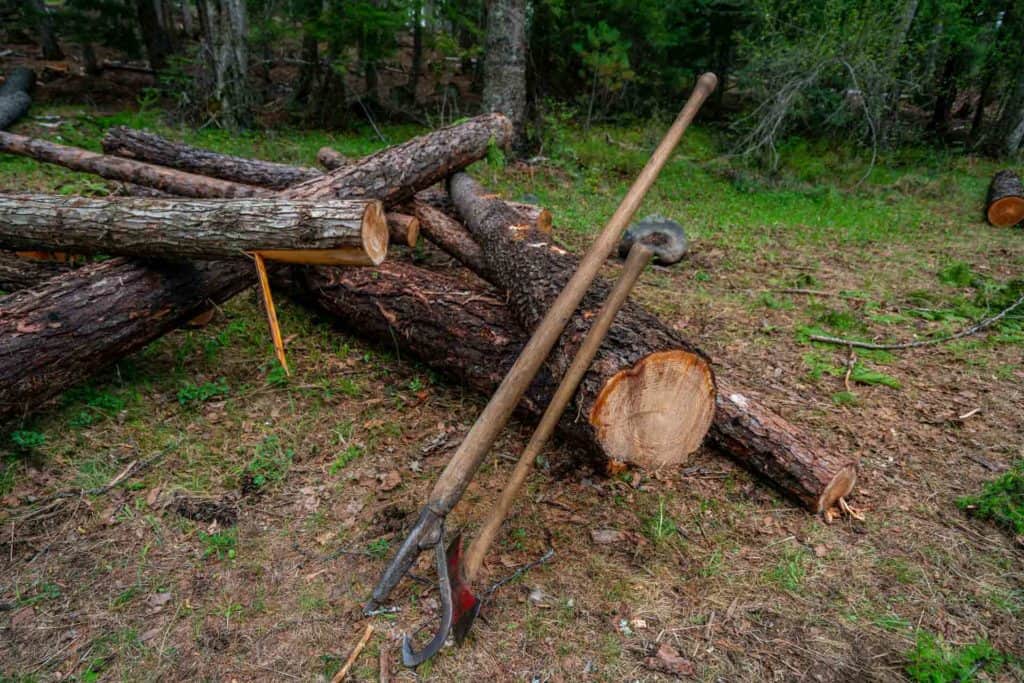
Multiple Revenue Streams
When building a homestead business, having the mindset that you’re going to be building multiple revenue streams is very important. This goes hand in hand with the cash flow mentioned above.
As most homesteaders understand, the garden only grows certain months out of the year. The cow only produces milk for so many months. Raising and selling meat chickens only happens for a certain number of months, etc.
Unless you can make enough money for the entire year during the few months your garden is producing, you may want to consider stacking multiple revenue streams. It could be what gets you through in your homestead business.
Innovation is expensive! And mastery happens over time, it doesn’t happen overnight. The goal is for those areas that you’ve already mastered to fund a new business venture that you haven’t quite mastered yet.
Here are some questions Joel recommends asking yourself before beginning any new business venture:
- What do you like to do? (Or, what are you already good at?)
- What does your area need?
- What are you able to do that others aren’t?
The more income streams you’re able to have, the more stable your homestead business becomes. It’s imperative that you know if your business venture is profitable.
In a nutshell, to know if something is profitable, you take your income minus the cost of goods sold (what it costs your business to sell those products) minus your overhead (other expenses for your business). If you’re not left with a profit at the end of that equation, then your business venture isn’t profitable.
Profit = Income – Cost of Goods Sold – Overhead
The three ways to increase profit are:
- Increase sales
- Decrease expenses
- Increase turnover
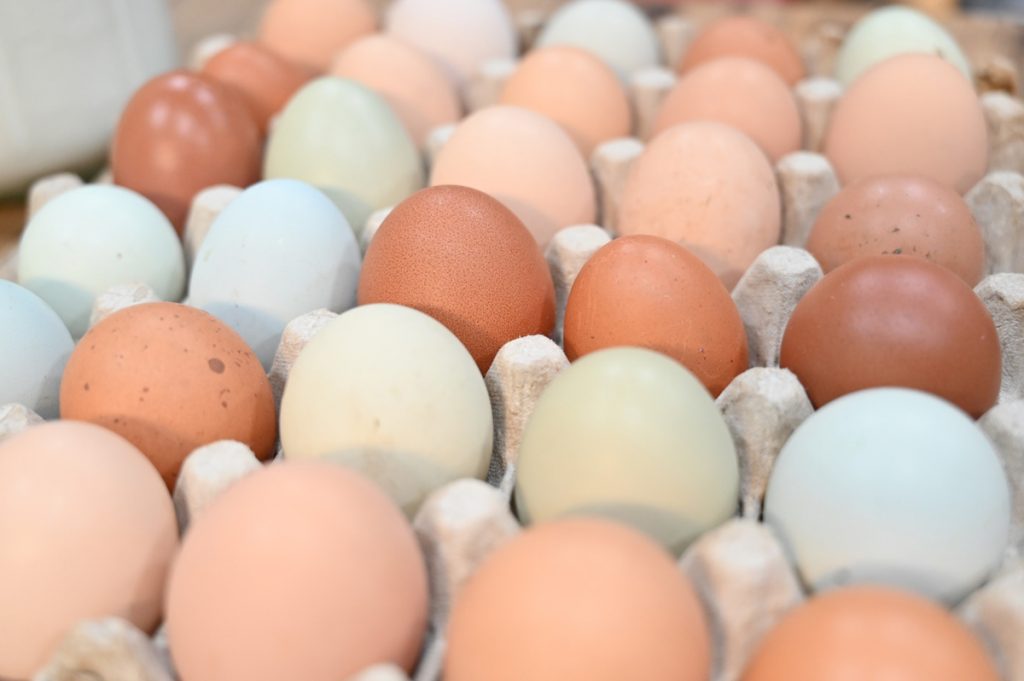
Diversify
When thinking about your cash flow and having multiple income sources, you’ll also want to consider diversifying your income. Perhaps you don’t only sell physical products. Maybe you’ve become proficient in a skillset and you start teaching classes.
Or perhaps you start a business in something that’s not reliant on circumstances outside your control. For example, if you raise a garden to sell your garden produce, but the weather is unfavorable one year, you’ll need to have a failsafe to keep you afloat during that bad crop year.
In an effort to bring in more income, you’ll want to look at all areas you can diversify your income. By having multiple revenue streams, you won’t be left high and dry if one business venture doesn’t do so well in one year.
And remember, keeping good business records is the only way to know for sure you’re actually making money.

Holanic Business
A holanic business is one that’s started to salvage a waste stream from something else. For Joel, his egg mobile eliminated the need for head gate work as well as the need to spread cow patties in the pasture. The chickens also eliminated many grubs and parasites from the land which equated to healthier livestock.
If those chickens never laid a single egg, they would still be beneficial to the farm because of what they do for the livestock sanitation and management system. However, they also bring in a profit due to their incredible egg production.
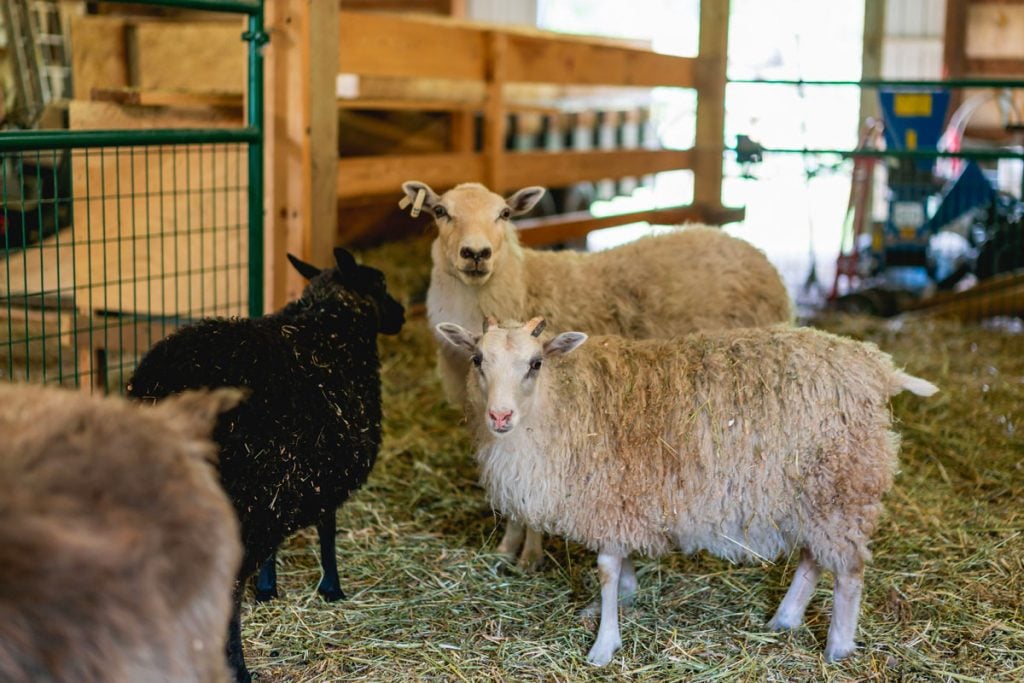
Ideas for Start-Up Homestead Businesses
I asked Joel, if he could look into the future, what his recommendations for homestead businesses would be. His answer is an interesting concept and one to certainly consider.
- Care Giving Farms – Over in Europe, there are care giving farms that have been around for decades with great success. This is where a farm allows elderly people, autistic children and adults, or even younger children (daycare ages) to come to the farm and enjoy farm-life experiences, all while getting the necessary care they need. Typically speaking, these people have a specific type of healthcare and your homestead can get licensed to be a business that takes in these individuals and is paid by the healthcare systems. Sometimes, the people in your care can even help with simple homestead chores or tasks as part of their care. If you have the proper skills, training and a heart to care for people (remember to check with your state-specific licenses/compliances), it can be a great source of income while also having help to maintain your homestead.
- Trade Skills – Most of the people working in the trades are aging out. If you want to have a trade that will always be needed, then continue building up these trade skillsets. Plumbing, carpentry, electrical work, mechanics, etc. Find someone you can shadow and learn from to build your own skillsets.
Homestead Businesses to Avoid
I asked Joel if there were specific business ventures he’d recommend avoiding when just starting out. He quickly replied with businesses that focus on exotics. Ventures with emus, llamas, and other exotic animals have a much lower sale rate than something like chickens and beef.
Your market is much smaller. Though you may be able to charge more, it’s harder to find your market than with something that’s a shoe in.

Conclusion
There’s no mistake that both Joel and myself would highly recommend finding a homestead business venture, as we ourselves have done. However, we both also recommend to wade in carefully and with eyes wide open to the understanding of what you’re getting into. Not getting in over your head, and taking the proper steps, in the proper order so your business ventures thrive for the long haul.

Where to Find Joel
- Modern Homesteading Conference – Joel will be at the Modern Homesteading Conference this year (2024) in North Idaho.
- Check out Joel’s website, Polyface Farms
- Farm Like a Lunatic – Make your homesteading and self-reliance dreams a reality with Joel’s online course.
- Find Joel on Instagram
- Find Joel on Facebook
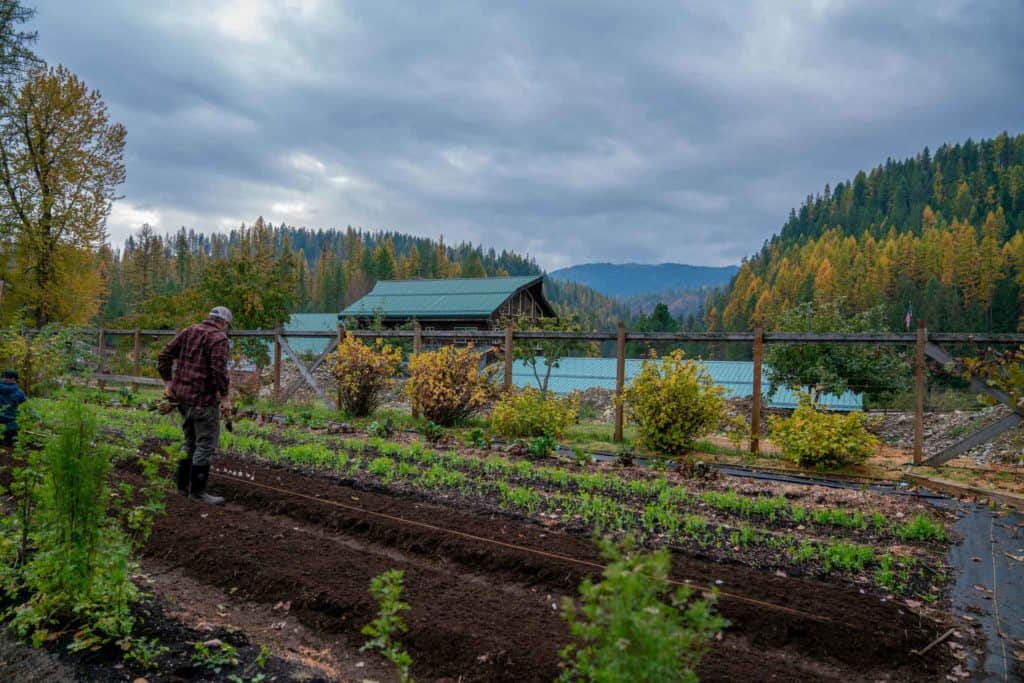
More Posts You May Enjoy
- Good Enough is Perfect
- Preparing the Homestead for Winter
- Does Homesteading Save You Money?
- Our Homestead Journey (Apartment to 40 Acres)
- How to Get Started Homesteading
- 7 Things You Must Do On Your New Homestead
- 8 Things You Need to Know When Buying Homestead Property
- How to Pivot When Things Go Wrong on the Homestead














